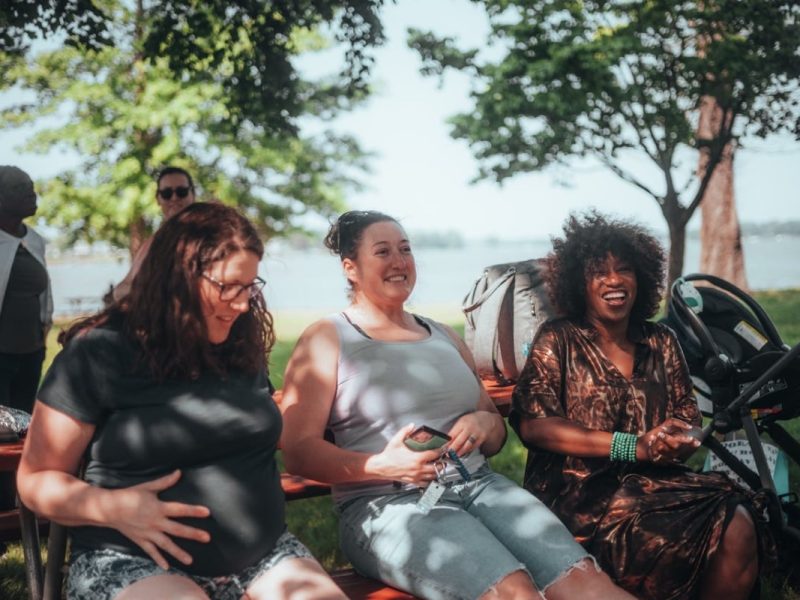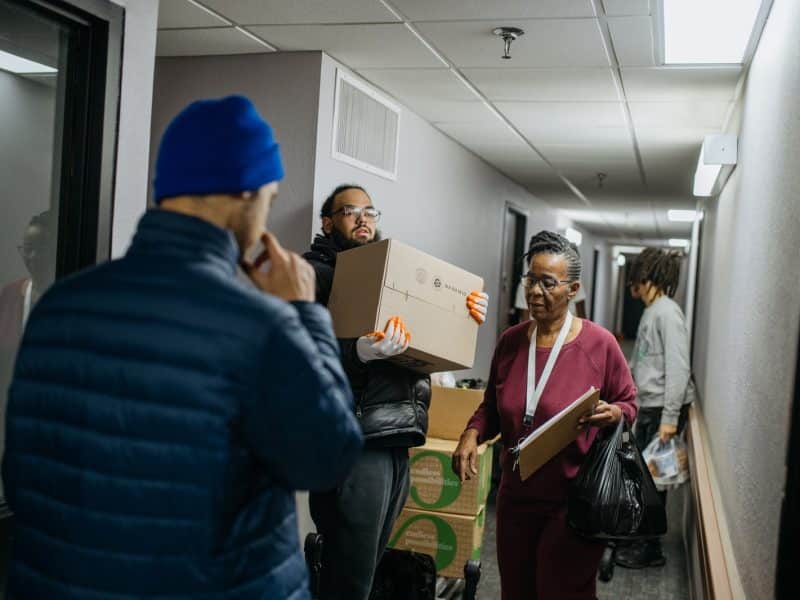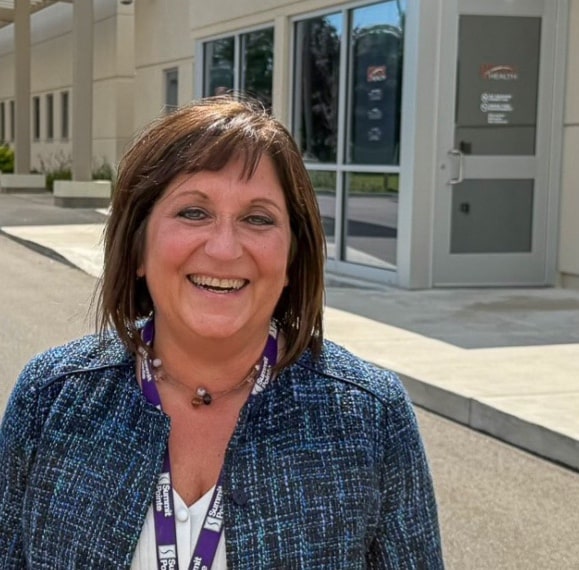
For individuals with dementia and their families, a dementia diagnosis can feel like a death sentence. The Michigan Dementia Coalition is working to change that.
This article is part of State of Health, a series about how Michigan communities are rising to address health challenges. It is made possible with funding from the Michigan Health Endowment Fund.
In talking to individuals with dementia and their families, members of the Michigan Dementia Coalition have frequently heard that a dementia diagnosis can feel like a death sentence.
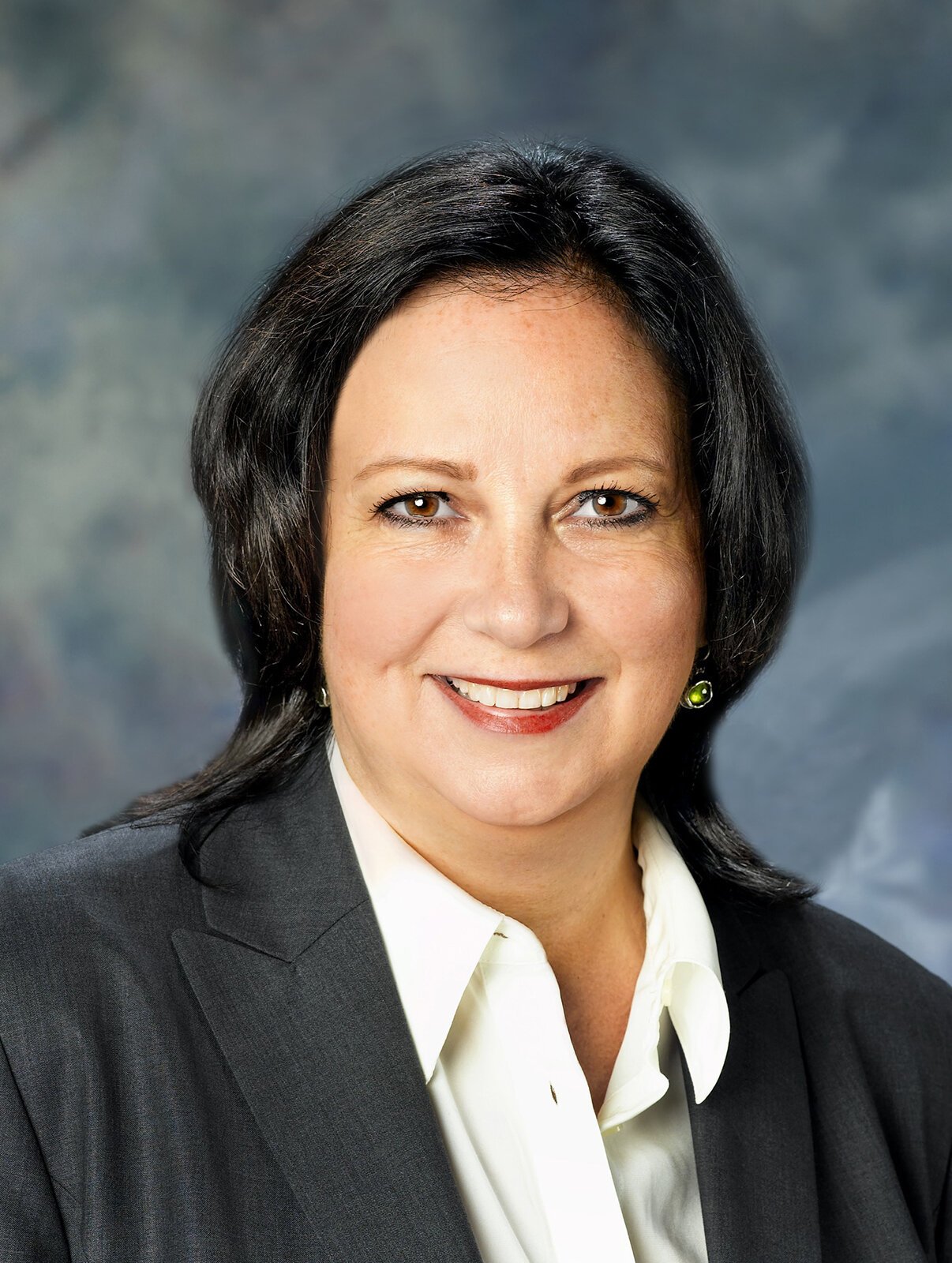
“When they got a diagnosis, there was really an element of finality and tragedy,” says Jennifer Lepard, co-chair of the Michigan Dementia Coalition and president/CEO of the Greater Michigan chapter of the Alzheimer’s Association. “[The tone of the discussion is,] ‘You have this. You should go home and get your papers in order.'”
But, she says, it doesn’t have to be that way – and the coalition wants to change that. The coalition includes representatives from Michigan’s Area Agencies on Aging, universities, health care systems, assisted living facilities, nonprofits, the Michigan Department of Health and Human Services’ (MDHHS) Aging and Adult Services Agency, and others who have come together to advocate for Michiganders living with dementia. The coalition does not have staff available to provide help to individuals to make inquiries, but it maintains an online list of resources for those living with dementia and is involved in a wide range of outreach and advocacy efforts.
“We need to treat dementia as a chronic condition, a condition that people are likely to live with for many years,” Lepard says. “How are you going to live? Let’s live the best that we can even though we have this condition.”
Built on the work of Michiganders who have been coming together around the topic for the past three decades, the coalition disbanded in 2013. But in 2017, the Greater Michigan chapter of the Alzheimer’s Association decided to reinvigorate the group. After successfully engaging a long list of partners, the coalition created a new statewide action plan, the 2019-2022 Roadmap for Creating a Dementia Capable Michigan.
“We will address the issue of stigma, [which] is a huge barrier, and include people who are living with dementia in making decisions about themselves and decisions about policy as it relates to dementia,” says Lisa Dedden Cooper, coalition co-chair and manager of advocacy for the American Association of Retired Persons Michigan. “We recognize people living with dementia and their family caregivers as the real-life experts. That’s part of our vision of being a dementia-capable state.”
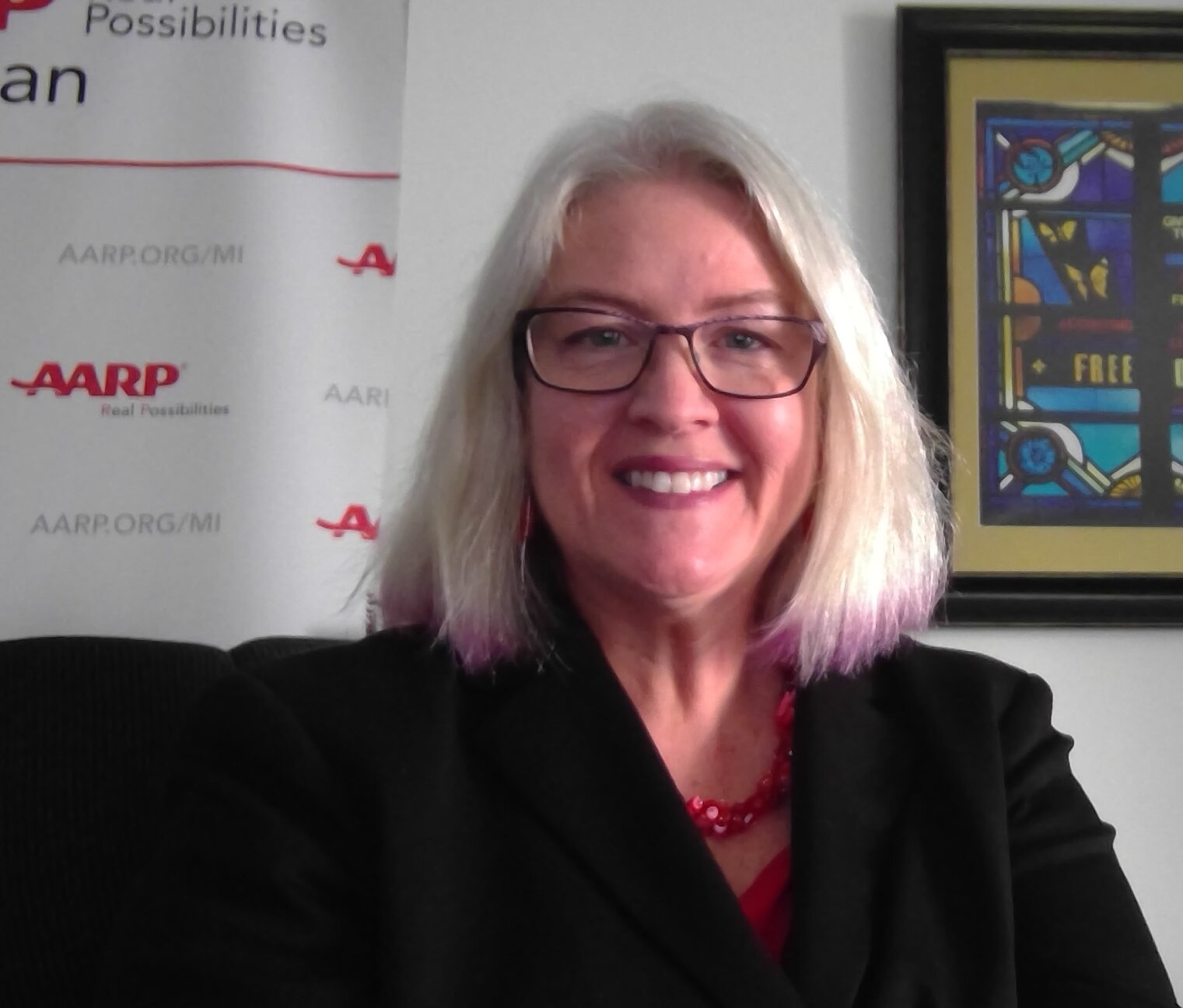
“Dementia-capable Michigan means talking about a number of things — public awareness about brain health, reducing stigma, providing services that are easily accessible,” Lepard adds. “In health care settings, we want to see providers with the skills they need to diagnose, treat, and make sure people are aware of the services available, that people living with dementia have access to what they need to be active members of their communities.”

Dr. Scott Roberts rounds out the coalition’s trio of co-chairs. He’s also a professor and researcher at the University of Michigan (U-M) School of Public Health and Michigan Alzheimer’s Disease Research Center. He notes that becoming a dementia-capable state also includes supporting the families of those living with dementia.
“Dementia is an illness that can affect the whole family system. It has implications for whole families’ quality of life,” he says. “Family caregivers often face their own mental and physical health challenges because of the burden of caregiving. If we’re able to succeed, we could have these possible ripple effects across a wide range of people.”
The Roadmap promotes “the well-being and safety of people living with dementia at all ages and stages.” Action steps are broken down into four areas: people living with dementia and their caregivers; partnerships with the health care, education, public health, and business sectors; public health involvement to raise awareness, provide early detection, improve data collection, and reduce disparities; and policies that support people living with dementia and their caregivers in realms like the workplace, public transportation, and respite opportunities.
“The number of people with dementia continues to go up, with significantly higher numbers of people being diagnosed. It’s not a rare condition that only affects a small subset of the population,” Roberts says. “Hopefully, we can demonstrate that it goes beyond being just a medical issue and becomes a social issue.”
The coalition hopes to help spread word among the general public about available community resources that support health and quality of life, as well as preventive messaging about brain health and avoiding the various types of dementia.
“What’s good for the heart is good for the brain,” Lepard says. “Things like exercise, good nutrition, good sleep — the standard list of health-conscious things helps prevent dementia.”
The plan also involves public outreach efforts like a joint program between the Alzheimer’s Association and the Henry Ford Museum and Greenfield Village, which trained more than 100 staff members in how to provide a good experience for people with dementia and their caregivers who visit the museum.
“Having a better understanding of how to provide support to these individuals is one of the goals we have,” Lepard says. “We want to make sure people really understand how stressful it is for caregivers who are going out. For example, a waiter at a restaurant might not be aware of what causes caregivers stress. We really want people to be educated on this disease.”
While Alzheimer’s disease gets the most press, other dementia diagnoses include dementia with Lewy bodies, vascular dementia, and frontotemporal dementia. Mixed dementia describes having more than one of those types.
“Dementia is an umbrella term but with dementia, you have a disease. It’s not normal aging,” Lepard says. “As we age, our brains are impacted but dementia is not normal. Because people don’t realize that, they don’t always seek treatment.”
Creating a dementia-capable Michigan will also require buy-in from the business sector. As Michigan’s aging population grows and more Michiganders receive a dementia diagnosis, their family caregivers will face additional responsibilities that could impact their own employment. The coalition hopes to enlist employers in seeking solutions that both provide benefits for employees receiving a dementia diagnosis and support family caregivers by keeping them on the job.
“Most people with an Alzheimer’s diagnosis are in their 70s or 80s, but we are seeing more in their 50s and 60s who are still a part of the workforce,” Roberts says. “Employers need to figure out how to help them transition to retirement — and not just those with Alzheimer’s but also other types of dementia. Oftentimes, employee assistance programs are not well equipped to deal with dementia.”
“We would like to see policies in place that recognize we have a fair number of people in our workforce who are family caregivers,” adds Cooper. “It makes sense from an economic standpoint for those people to remain in their jobs and requires the balance of work and family responsibilities.”
COVID-19, of course, has made life even more difficult for Michiganders living with dementia and their caregivers — and has highlighted the need for both cultural and policy shifts toward a more inclusive approach. For example, Cooper says coalition members have noted that COVID-19 nasal swab tests can seem especially “frightening and intrusive” to people with dementia, so the ability to advocate for using saliva tests in nursing homes instead is important.
“The most dramatic challenge, in nursing home and institutional settings, is there is a lot of concern about how you manage [COVID-19] exposure. A lot of these facilities had to introduce policies that don’t allow visitors. This is very difficult for the family caregivers who are used to checking in on a daily basis,” Roberts says. “The family caregivers know the person best and the person with dementia lacks the ability to communicate. There is also the heartbreak of people not being able to see their loved ones.”
The Michigan Dementia Coalition has charted an ambitious course toward recognizing and promoting a cultural and economic shift in how Michiganders view, respond to, include, and care for people living with dementia.
“A lot of people have dementia or have a family member with dementia,” Cooper concludes. “The extent that we include them, improve their quality of life, become more understanding, and provide more access to services will increase quality of life for both individuals experiencing dementia and their communities.”
A freelance writer and editor, Estelle Slootmaker is happiest writing about social justice, wellness, and the arts. She is development news editor for Rapid Growth Media and chairs The Tree Amigos, City of Wyoming Tree Commission. Her finest accomplishment is her five amazing adult children. You can contact Estelle at Estelle.Slootmaker@gmail.com or www.constellations.biz.
Lead photo by Adobe Stock. All other photos courtesy of the subjects.
